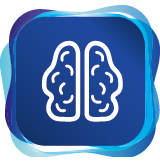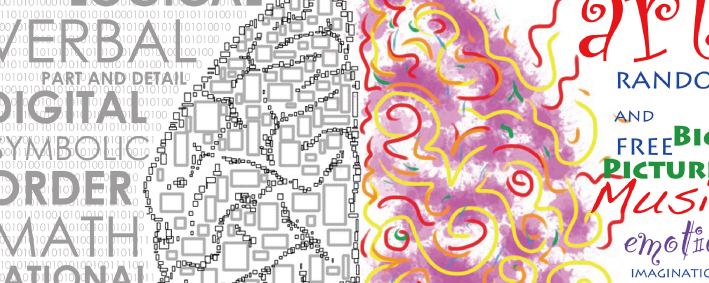 |
CCST9033 Science, Technology and Big Data
|
Course Description
The human brain is made up of about 100 billion neurons, and contains trillions of connections between cells. Somehow, activity of these neurons results in “consciousness”, and gives us our memories, abilities, creativity, and dreams. In this course, we will focus on how the brain controls some of the processes that we think of as making us human, such as language, memory, musical ability, learning, emotion, and so forth, and, in particular, whether there are differences between the two cerebral hemispheres, known colloquially as the “left brain” and the “right brain”. For each topic we will look at the way these abilities are instantiated in the brains of all of us, and also at what differences there might be in, say, musical processing between a skilled violinist and a complete novice. In addition, we will also look at fascinating case studies of people who have suffered brain damage and then lost some aspects of their conscious experience. Our aim is to critically evaluate claims about differences in function between the left brain and the right brain, for example in terms of “right brain learning”.

Course Learning Outcomes
On completing the course, students will be able to:
- Describe and explain, in general and non-technical terms, the general principles that govern neural function and hemispheric specialization in the human brain.
- Critically evaluate the nature of brain organization that underlies different human abilities (e.g. seeing, language, creativity).
- Effectively communicate and collaborate with teammates in developing a term project that critically evaluates the link between cerebral laterality and domains of human expression.
- Demonstrate an understanding of the general principles by which the scientific method can be used to evaluate complex, ill-defined problems.
Offer Semester and Day of Teaching
First semester (Wed)
Study Load
| Activities | Number of hours |
| Lectures | 24 |
| Tutorials | 12 |
| Reading / Self-study | 24 |
| Group project | 24 |
| Assessment: Essay / Report writing | 24 |
| Assessment: Presentation (incl preparation) | 12 |
| Assessment: In-class test (incl preparation) | 12 |
| Total: | 132 |
Assessment: 100% coursework
| Assessment Tasks | Weighting |
| Group project | 35 |
| Mini-experiment | 10 |
| Participation in tutorial discussions | 15 |
| Quizzes | 40 |
Required Reading
Selected news and journal articles.
Course Co-ordinator and Teacher(s)
| Course Co-ordinator | Contact |
| Professor J.H.W. Hsiao Department of Psychology, Faculty of Social Sciences |
Tel: 3917 4874 Email: jhsiao@hku.hk |
| Teacher(s) | Contact |
| Professor J.H.W. Hsiao Department of Psychology, Faculty of Social Sciences |
Tel: 3917 4874 Email: jhsiao@hku.hk |

